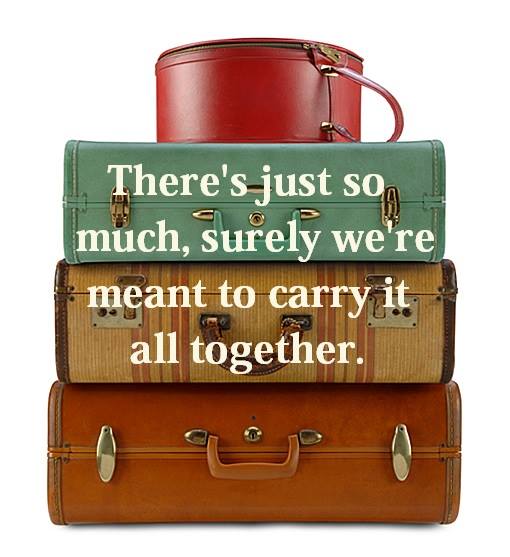Yesterday in my RS lesson, we actually experienced a truly safe space. It’s the first time in my long church life I’ve ever felt that. We were talking about adversity being the homework of earth school — that our lessons are individual, unfairly distributed, and ongoing. But that it’s how we make progress, how we become what we can, how we learn to love and understand others, and how we are made to walk by faith. That adversity’s real purpose is to change us.
I thought it might be most helpful to move beyond the abstract and really get a snapshot of the kinds of adversity in that room. So I asked women to think of the hardest things they’ve experienced, the biggest burdens they carry. And then we started to call them out. (I went first, hoping it would work. It did.) Death of a child, divorce, loss of spouse, sexual abuse, alcoholism, drug abuse, child in jail, faith crisis, suicide, ongoing unemployment, cancer, mental illness — these things and more tumbled out. I don’t think there was anyone in the room that wasn’t weeping. How can you not be moved when the woman sitting next to you calls out that she carries this kind of weight? So many previously unseen, real world things were suddenly there in plain sight, wearing the faces of people we each knew and loved. So then we moved to discussing how surviving these things had changed us. And everyone agreed that the number one lesson they had learned was not to judge others.
I didn’t even know what to say. I told them I’ve pretty much spent my entire lifetime at church feeling judged, and many of them said they’d felt the same. Why?
It exposed a jarring disconnect between our culture, or maybe perceived culture, and the individual, very real people in the pews. I said that if only I’d understood that truth when I was 18, my entire Mormon life might have been different. It was a sad realization for me. Adversity can be unbearable, but the feeling of carrying it alone is sometimes as bad as the experience itself, and that feeling of isolation can last a lifetime. It goes directly against everything we’re meant to be about in our collective pursuit of Christ-like living and loving. I’ve said it before, and I’ll say it again: If we can get members to be real with each other — to actually meet where we are, and walk a bit together — it could change everything.
